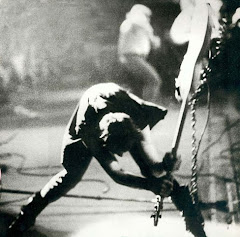
The old man’s got a set of wrinkles on his face from living a life most of us will never expose ourselves to: one spent largely outdoors, coaxing subsistence from a patch of land along the river that’s been in his family over 300 years. A two-pack-a-day life spent worrying, figuring, calculating, gauging – everything from the weather to a neighbor’s intent. It all has weight. He doesn't know from SPF, from lung cancer, from the health benefits of green tea or the cholesterol-fighting properties of red wine. So he most certainly isn’t going to know why this spay/neuter business is so important.
But he’s brought his dog in anyway. A six month old Shepherd mix wrapped in an over sized towel that he carries in his arms like a baby.
“Is it gonna hurt him?” he asks me, nodding down at the bundle in his arms. The dog blinks its big brown eyes at me but otherwise keeps still in his owner’s arms. “He’s a good dog, you know? I’d hate to lose him.”
I understand how he feels. I spent part of my childhood on a ranch we rented from a local cattle baron. When my father was on break from teaching high school science, he helped our landlord with the herd – everything from castrating the bulls to branding, birthing, and herding. So I know just how valuable a good dog can be.
But that was a long time ago. Today, I’m just a middle class white chick trying to explain to someone from another universe about why we need to stem the flow of unwanted animals into our city’s shelters.
Once upon a time, I didn’t know from spay or neuter. Growing up, we pretty much let our animals do their thing. When our dogs had pups, what the coyotes and hawks didn’t get, we kept or gave away. There was always need for a good dog – to herd, to guard, to hunt, to retrieve. They didn’t go to waste.
But what of dogs today? Many people are indifferent to them. Many purport to love them. But in my experience, few understand them. That many of them languish, woefully unused and misunderstood, crosses all socio-economic barriers, from the short-chained backyard barrio pit bull to the over nurtured poodle whose upper crust owner invests it with a bus load of unmet needs but who has never taken it on a hike, thrown it a ball, run it on an agility course.
Witness the call I received early this year from a woman desperate to figure out why her pit bull/Labrador retriever cross was tearing up her home when she was gone. She told me she'd consulted a pet psychic who said her dog was "stuck" emotionally. Refraining from calling her a complete nut job, I instead firmly suggested she try some hard physical exercise. You know, give the dog something to
do. The woman was a distance runner but for some bizarre reason had never thought of taking her dog with her.
Duh!You know there's a big disconnect between how we feel about our pets and how we truly meet their needs when even Wayne Pacelle, president of the world’s biggest so-called animal welfare organization, the Humane Society of the United States, admits he has no real understanding of or connection to animals.
In Ted Kerasote’s marvelous book
Bloodties Pacelle admits: "I don't have a hands-on fondness for animals. To this day, I don't feel bonded to any particular nonhuman animal. I like them and I pet them and I'm kind to them, but there's no special bond between me and other animals. . . .
It's more of an intellectual/philosophical motivation than it is hands-on."
WTF?Remember those words, the next time you’re tempted to donate to the Humane Society. It’s an organization that, along with the domestic terrorist group PETA, operates not one single animal shelter anywhere in the world. Yet these are organizations that control bank accounts totaling over $100 million each. Where does all that money go? Certainly NOT to the frightened animal toughing it out on a cold concrete floor at your local pound.
Anyway.
The fact remains that in this country alone, we slaughter between 6 and 8 million cats and dogs, puppies and kittens in municipal animal shelters each year.
Your tax dollars pay for that slaughter, Party People. Even worse, think of the terrible, sickening waste. Of creatures we plucked from the wild and domesticated to work side-by-side with us – to hunt our food, keep our pests at bay, protect our children, offer us companionship during and after a hard day’s work. Think of the awful betrayal of that contract.
Turning my attention back to the old man, I assure him his dog is going to be just fine. All he has to do is limit its activity for about a week. Oh, and bring him in these next couple nights. It’s critical the dog remain warm and dry.
For the first time, the old man relaxes his face and smiles. “Oh, that’s no problem. He sleeps on the bed anyway.”
















 Yours in peace, joy, love, and (Christ)ian Louboutins,
Yours in peace, joy, love, and (Christ)ian Louboutins,







